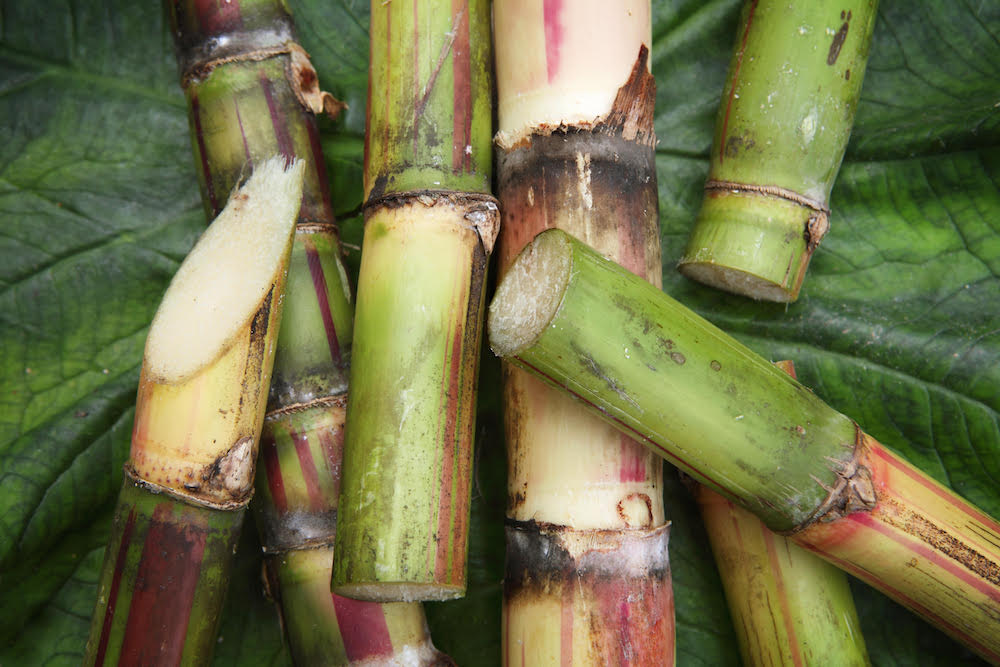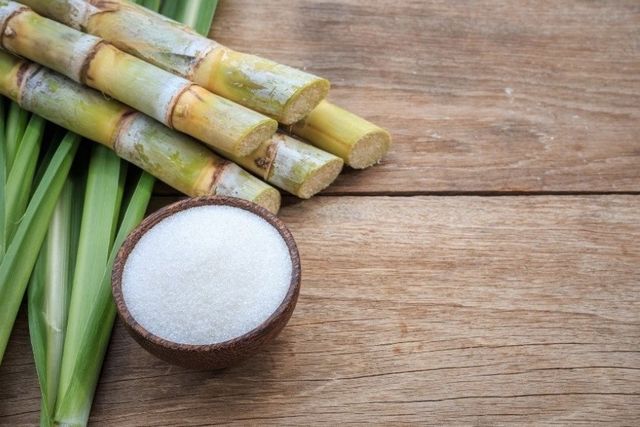How Sugar and Cane Are Used in the Production of Natural Sweeteners
How Sugar and Cane Are Used in the Production of Natural Sweeteners
Blog Article
Why Walking Stick Sugar Handling Chemicals Are Critical for Modern Sugar Refining
The function of cane sugar handling chemicals in modern-day sugar refining can not be overstated, as they are essential to enhancing both the performance of removal and the total quality of the final item. Agents such as phosphoric acid and specific flocculants are employed to get rid of contaminations, leading to sugar that not just satisfies customer expectations yet also sticks to market requirements. The ramifications of these chemicals prolong beyond quality, touching upon market dynamics and environmental factors to consider. sugar and cane. This elevates essential questions concerning the sustainability of such methods and their effect on the future of sugar production.
Role of Processing Chemicals
The effectiveness of cane sugar handling pivots dramatically on the tactical application of processing chemicals. These chemicals play a pivotal duty in boosting the performance and top quality of sugar removal and refining. From the preliminary stages of juice removal to the last filtration steps, handling chemicals help with different important operations.
In the extraction stage, chemicals such as phosphoric acid and calcium hydroxide are utilized to maximize the explanation process, assisting to get rid of impurities and put on hold solids from the walking cane juice. This not only enhances the return but likewise makes certain the quality of the last item. In addition, representatives like flocculants aid in the quick settling of contaminations, thereby improving the overall process.
As the handling breakthroughs, chemicals are utilized in decolorization and crystallization stages. Turned on carbon and ion exchange resins serve to eliminate color and odor, guaranteeing that the refined sugar fulfills customer high quality requirements. Inevitably, the duty of handling chemicals expands past functional effectiveness; they substantially influence the sensory characteristics of the end product, adding to market competition. Thus, the meticulous selection and application of these chemicals are crucial for achieving optimal end results in walking cane sugar handling.
Secret Sorts Of Chemicals
Cane sugar processing counts on a selection of vital chemicals that assist in each phase of manufacturing. These chemicals play necessary functions in making clear, bleaching, and detoxifying the sugar drawn out from walking cane.
One primary category of chemicals includes flocculants, such as polyacrylamide, which aid in the information process by promoting the gathering and settling of contaminations. In addition, calcium hydroxide is often utilized to neutralize level of acidity and assist in the removal of non-sugar components.
Lightening agents, such as turned on carbon and sulfur dioxide, are utilized to decolorize the syrup, resulting in a clearer end product. These chemicals aid get rid of shade substances that might affect the sugar's look and bankability.
Additionally, phosphoric acid works as a pH regulator during the processing stages, ensuring optimal problems for the chemical activities included in sugar removal and filtration.
Various other crucial agents consist of edta (ethylenediaminetetraacetic acid), which chelates steel ions that can catalyze unwanted reactions, and salt hydroxide, which aids in pH control throughout the refining procedure. Collectively, these chemicals boost effectiveness and make certain a premium walking cane sugar item.
Advantages for Sugar High Quality
Often overlooked, using certain handling chemicals substantially enhances the overall high quality of walking cane sugar. These chemicals play a crucial duty in refining procedures, guaranteeing that the end product meets strict market requirements for pureness and taste.

In addition, refining chemicals help in accomplishing a constant granulation and texture, which are critical for customer acceptance. By regulating the crystallization procedure, these chemicals ensure that the sugar crystals create consistently, causing an extra enticing item that dissolves well in numerous applications.
Furthermore, using these chemicals can boost the service life of walking cane sugar by decreasing dampness absorption and microbial development. Overall, the calculated application of handling chemicals is crucial for delivering premium walking stick sugar that fulfills consumer assumptions and industry needs.
Ecological Impact Considerations

In addition, the energy-intensive nature of sugar refining, compounded by chemical usage, typically causes boosted carbon discharges. This contributes to climate change and raises problems pertaining to the sustainability of existing refining methods. Additionally, the sourcing of these chemicals might entail techniques that endanger biodiversity, such as monoculture farming, which lowers the durability of agricultural communities.

To reduce these effects, sugar refiners are significantly discovering sustainable options and embracing finest techniques that minimize chemical usage. Applying extensive ecological management systems can help guarantee that the refining procedure straightens with ecological criteria and promotes biodiversity. Eventually, a well balanced strategy that prioritizes both sugar top quality and environmental stewardship is essential for the lasting viability of the sugar industry.
Future Trends in Refining
As the sugar industry grapples with the environmental challenges related to typical refining techniques, cutting-edge methods are arising to boost both performance and sustainability. One substantial pattern is the adoption of green chemistry concepts, which prioritize using safe, naturally degradable processing chemicals. This change not only decreases environmental influence yet additionally addresses customer need for cleaner production techniques.
One more appealing growth is the implementation of sophisticated filtration innovations, such as membrane splitting up and adsorption procedures. These techniques boost the clarity and top quality of the sugar while reducing the volume of wastewater produced during refining. Additionally, the assimilation of electronic modern technologies, consisting of IoT and AI, is transforming functional efficiency by enabling real-time monitoring and anticipating upkeep, hence lessening resource waste.
Additionally, making use of byproducts from sugar refining, such as bagasse and molasses, is gaining grip. These materials can be converted into biofuels or value-added items, adding to a round economic climate within the market. Collectively, these fads signal a change in the direction of more lasting practices that not just enhance operational efficiency however also line up with worldwide sustainability objectives, ensuring the future practicality of sugar refining.
Final Thought
Cane sugar handling chemicals are essential in modern sugar refining, substantially enhancing the performance and top Website quality of sugar extraction. The strategic use these chemicals not only improves the purity and flavor of the end product however also guarantees regular formation and texture. As the industry progressively prioritizes sustainability, the adoption of environmentally-friendly handling agents is likely to shape future patterns in refining, ultimately causing better products and prolonged service life for customers.
:max_bytes(150000):strip_icc()/ms-sugar-getty-cfed0662acca49f7b6e52c593767dfb9.jpg)
Inevitably, a balanced strategy that prioritizes both sugar top quality and environmental stewardship is important for the lasting practicality of the sugar sector.
Walking cane sugar processing chemicals are important in navigate to this website modern-day sugar refining, dramatically improving the performance and quality of sugar removal.
Report this page